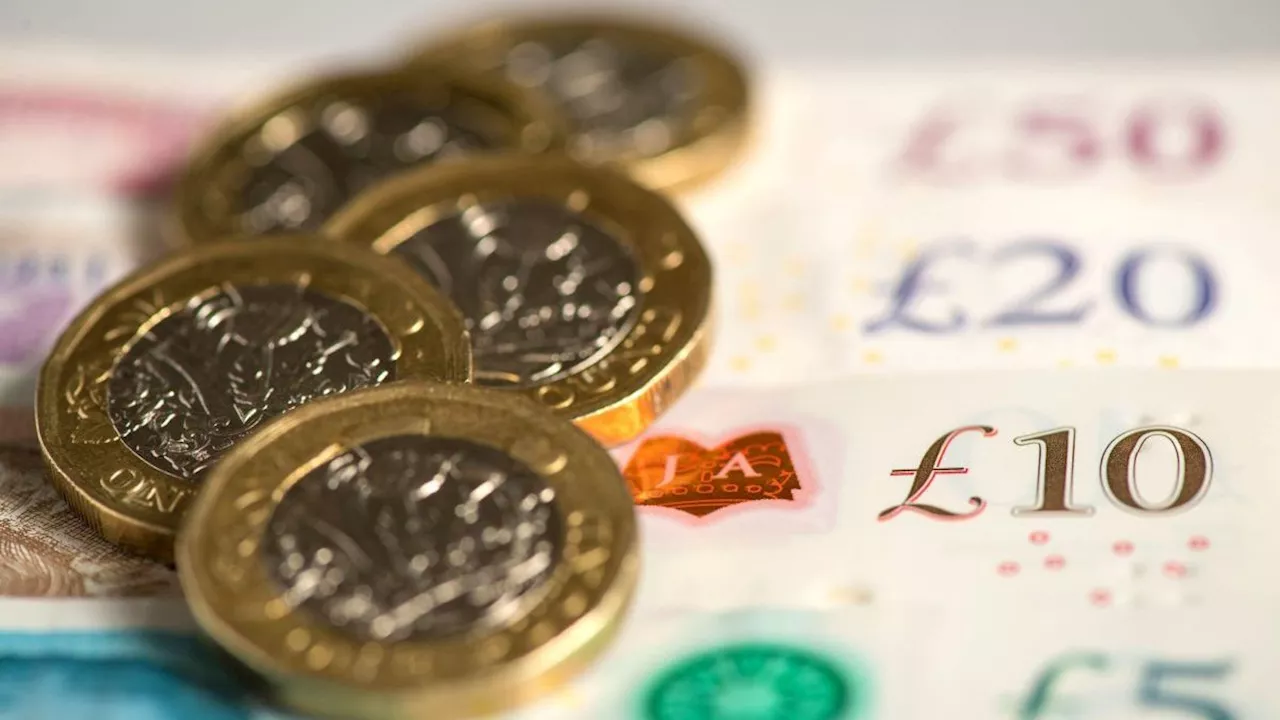Most economists predict inflation will remain stable at 2.6% in December but increase later in the year due to rising borrowing costs.
Most economists predict that inflation will remain at its current level but anticipate an increase later in the year. This forecast follows rising borrowing costs, potentially prompting the Chancellor to introduce a mini-budget. Despite predictions that the consumer prices index (CPI) measures of inflation will rise throughout the year, most economists believe it stayed the same as November's level in December.
Robert Wood, chief economist at Pantheon Macroeconomics, stated, “I’m expecting inflation to hold steady at 2.6 per cent as a fall in air fares, due to CPI being collected early in the month well before school holidays, offsets rises elsewhere.” Capital Economics shares this view. In a note released last week, it predicted inflation would remain at 2.6 per cent, adding it expects core inflation – which excludes volatile items like food and energy – to decline from 3.5 per cent in November to 3.3 per cent in December. Yael Selfin, chief economist at KPMG, stated: “We’re expecting December inflation figure to be unchanged from November at 2.6 per cent.” Sanjay Raja, chief UK economist at Deutsche Bank, noted: “Our preliminary estimate is that CPI could just tip over to 2.8 per cent year on year in December, driven in large part by stronger airfares. There are some downside risks to this estimate.”The Office for Budget Responsibility, which acts as a watchdog for the Treasury, predicted in October that the Chancellor’s Budget would increase inflation, partly because some of the rise in employer national insurance contributions would be passed on to consumers in the form of higher prices. It is widely anticipated that inflation will increase throughout this year, with many expecting it to reach 3 per cent or higher. Mr. Raja added: “A central hypothesis of ours is that headline CPI will reverse course in 2025 – albeit temporarily. After averaging 2.6 per cent year-on-year, we see price momentum rising to around 3 per cent. One reason inflation is expected to increase is higher energy prices. Gas prices have soared recently – something households will be closely watching. Ofgem’s price cap has already registered two consecutive quarterly increases. After a 10 per cent rise at the end of last year, annual average dual fuel bills rose by a further one per cent in January. Mr. Raja stated: “Natural gas prices have picked up considerably on the back of cooler temperatures, lower storage levels, and the stoppage of Russian gas flows into Western Europe via Ukraine. “Our models now point to a hefty spring increase of near 7 to 10 per cent should gas and electricity futures prices remain steady for the next month or so.” There has also been an increase in food prices, and the rise in National Living Wage and the rise in employer National Insurance Contributions is expected to add to retail prices. Continued services inflation is keeping headline inflation above-target. “Increases in both the living wage and payroll taxes will likely lift inflation in low-margin services sectors such as hospitality and leisure. We also see rents inflation taking longer to unwind after rising by 8 per cent in 2024. Higher inflation means prices are rising quicker than otherwise and can prompt the Bank of England to keep interest rates higher for longer. The Bank will make its decision in February. Currently, experts are divided over whether there will be a cut from the current rate of 4.75 per cent or another hold. If there is a rate cut next month, it is then expected there will only be a handful of cuts throughout the year. Higher inflation and interest rates aren’t great news for mortgage borrowers as it often leads to rates remaining higher for longer. Average two-year and five-year fixed deals for those with 25 per cent equity or deposit are now expected to rise above 5 per cent in the coming weeks, causing more financial pain for buyers and those trying to re-mortgage. Aaron Strutt, of brokers Trinity Financial, said: “It seems likely there are mortgage price hikes on their way. With all of the uncertainty in the economy and pretty harsh tax changes announced in the Budget, mortgage borrowers are set to end up paying more and for longer. Higher rates for longer pose a headache for Reeves and Sir Keir Starmer, because they risk keeping the brakes on economic growth at a time when the government has identified boosting growth as its number one priority. If growth expectations are revised down, it could threaten the Government’s ability to meet its fiscal rules on borrowing, potentially requiring the Chancellor to implement additional tax rises or spending cuts. This is problematic for Labour because it has promised to raise living standards, with the Prime Minister committing last month to achieving higher real household disposable income and GDP per capita in every region of the UK by the next election. However, higher interest rates often translate to higher savings rates, which is good news for some households
INFLATION INTEREST RATES MORTGAGE FORECASTS ECONOMY
United Kingdom Latest News, United Kingdom Headlines
Similar News:You can also read news stories similar to this one that we have collected from other news sources.
 Energy Prices Rise Again, With 3% Hike Forecast for AprilMillions of UK households face another energy price increase, with a 3% rise predicted for April. The current price cap has already increased by 1.2% this week.
Energy Prices Rise Again, With 3% Hike Forecast for AprilMillions of UK households face another energy price increase, with a 3% rise predicted for April. The current price cap has already increased by 1.2% this week.
Read more »
 Tube and rail fares to rise in London next year by inflation-busting amount...LONDON, ENGLAND – OCTOBER 30: Chancellor of the Exchequer, Rachel Reeves, poses with the red Budget Box as she leaves 11 Downing Street to present the government’s annual budget to Parliament on October 30, 2024 in London, England. This is the first Budget presented by the new Labour government and Chancellor of the Exchequer, Rachel Reeves.
Tube and rail fares to rise in London next year by inflation-busting amount...LONDON, ENGLAND – OCTOBER 30: Chancellor of the Exchequer, Rachel Reeves, poses with the red Budget Box as she leaves 11 Downing Street to present the government’s annual budget to Parliament on October 30, 2024 in London, England. This is the first Budget presented by the new Labour government and Chancellor of the Exchequer, Rachel Reeves.
Read more »
 UK Unemployment Steady, Wages Rise Outpacing InflationThe UK's unemployment rate remained stable at 4.3% in the three months leading up to October, while regular earnings growth climbed to 5.2%, exceeding inflation by 3%. This surge in wages is expected to influence the Bank of England's interest rate decision on Thursday.
UK Unemployment Steady, Wages Rise Outpacing InflationThe UK's unemployment rate remained stable at 4.3% in the three months leading up to October, while regular earnings growth climbed to 5.2%, exceeding inflation by 3%. This surge in wages is expected to influence the Bank of England's interest rate decision on Thursday.
Read more »
 UK inflation likely to rise again as cigarette and petrol prices tick upThe Office for National Statistics will announce the latest monthly Consumer Prices Index reading on Wednesday.
UK inflation likely to rise again as cigarette and petrol prices tick upThe Office for National Statistics will announce the latest monthly Consumer Prices Index reading on Wednesday.
Read more »
 UK Inflation Expected to Rise in NovemberThe Consumer Prices Index (CPI) is predicted to have risen to 2.6% in November, from 2.3% the previous month, driven by factors like increased tobacco duty, petrol costs, and food and alcohol price increases.
UK Inflation Expected to Rise in NovemberThe Consumer Prices Index (CPI) is predicted to have risen to 2.6% in November, from 2.3% the previous month, driven by factors like increased tobacco duty, petrol costs, and food and alcohol price increases.
Read more »
 UK Inflation Hits 2.6% as Food and Energy Prices RiseInflation in the UK has reached 2.6% in November, exceeding the Bank of England's 2% target. Rising costs for clothing, petrol, diesel and festive staples like carrots and potatoes are driving the increase. Olive oil prices have surged by 28%, but experts predict a return to lower prices in the coming months due to a promising olive harvest.
UK Inflation Hits 2.6% as Food and Energy Prices RiseInflation in the UK has reached 2.6% in November, exceeding the Bank of England's 2% target. Rising costs for clothing, petrol, diesel and festive staples like carrots and potatoes are driving the increase. Olive oil prices have surged by 28%, but experts predict a return to lower prices in the coming months due to a promising olive harvest.
Read more »
